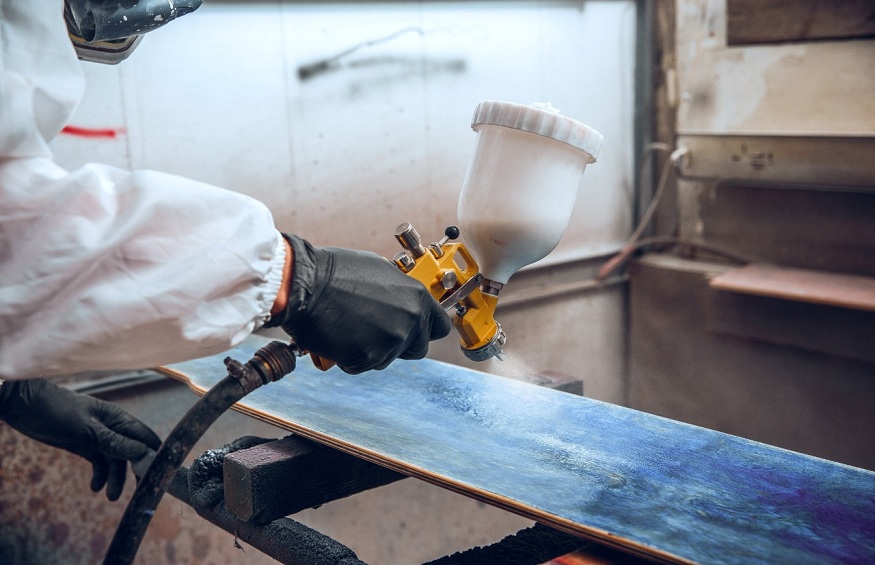Introduction:
One type of material that can be utilized in a lot of different industries is zinc-coated steel, which are typically coated with a factory galvanizing process. This will provide excellent corrosion protection coating due to the fact that the zinc acts as a barrier against corrosive materials, such as acid and salt water. Zinc-coating also allows for high strength and durability, which means it has a long life span and does not corrode easily when given proper care. Steel is used in a lot of industries, including construction and infrastructure, but it is very important to understand how that steel is going to be used and what materials are going to be utilized on top of it. Galvanization is one way that this can be achieved as the coating will provide protection against corrosion while also improving the strength of the material.
Corrosion:
There are three types of corrosion, which are galvanic (corrosion by means of a galvanic cell), electrochemical (corrosion by means of electrolytic cells) and biological (the use of microbes or algae for degradation). When it comes to steel there are a number of different ways that it can corrode. One of these is the well known galvanic corrosion which is caused by a galvanic cell, a reaction between two different metals. Galvanic corrosion can occur due to electrolytic or electrochemical corrosion, and there are several ways that this work. Electrolytic corrosion occurs when an electrode corrodes and gives off ions as you would expect to see with a galvanic cell. However, these ions can react with the steel when it gets hot enough to do so and cause severe damage over time if not properly treated or repaired. Electrochemical corrosion occurs from the interaction of liquids or gases in an electrolyte which can take many different forms including those found in seawater, sewage water and even acid rain. The last type of corrosion is biological corrosion and it occurs due to microorganisms like bacteria, fungi and algae that work to break down the materials that are present.
Bio-Galvanization:
Bio-galvanization is a process that can be used in order to treat steel in order to inhibit biological corrosion. This is done by zincating the steel with an ESG electrogalvanizing process before immersing it in an aqueous solution containing copper sulfate, nitrates and ammonium sulfate. The additive copper enhances the barrier properties of the coating under water and has been proven effective over time for preventing biofouling. Biofouling occurs when microbes attach to a surface and cause the corrosion of that material and bio-galvanized steel has been shown to be much less susceptible. There are many different things that can cause biofouling, including the amount of oxygen present in the water which can increase or decrease with temperature fluctuations. The amount of organic material and nutrients available to sustain microorganisms is also important, as is the availability of water for organisms to survive and reproduce.
The Role of Zinc:
The role that zinc plays in all this is an important one. In order for galvanized steel to provide protection from corrosion it needs a barrier layer, which is created from a galvanizing process.
Significance of Corrosion Protection Coatings:
Zinc-coated steel is commonly used in a lot of different industries for a number of different reasons. They are often used in the construction industry, especially when it comes to building construction and infrastructure as they are long-lasting and durable. They also have anti-corrosion properties that help to prevent corrosion from occurring as well as inhibiting corrosion if it has already started. There are many different types of galvanizing processes that can be utilized depending on what industry they are going to be utilized in and what level of protection is needed.
Iron Zinc Niobium or Zintl Alloys:
Zintl alloys involve compounds made up of iron, zinc, niobium and occasionally other transition metals like chromium. These compounds are commonly used in a number of different industries and are typically utilized as alloys or for their magnetic properties. This is important for a lot of different reasons, especially when it comes to the role that Zintl alloys play in the steel industry.
Zinc (Zn):
The term “zinc” can mean one of two things depending on what you are referring to: zinc metal or zinc oxide. When it refers to metal, it is talking about any material that contains at least 71% zinc while the remaining percentage can be made up of one or more additional elements such as copper and lead.
Conclusion:
The galvanizing process is a crucial part of rendering steel protected from corrosion, which is important in a number of industries. Corrosion can often be very costly and affect the longevity of a material as well as cost companies a lot of money. In order for steel to be properly treated it is essential that it be zinc-coated. This article took a look at how corrosion protection is achieved with galvanized steel, how corrosion occurs on zinc-coated steel and how the bio-galvanization process works in order to prevent corrosion from occurring.

